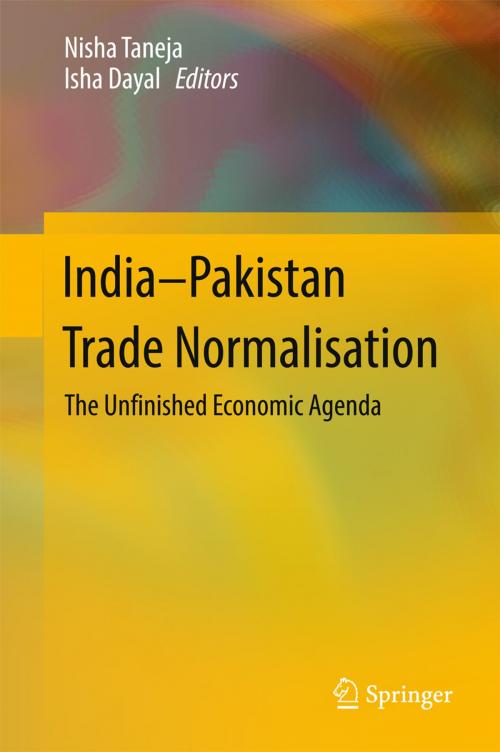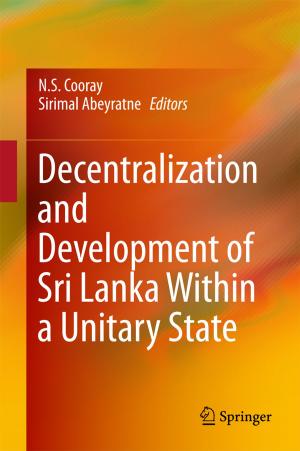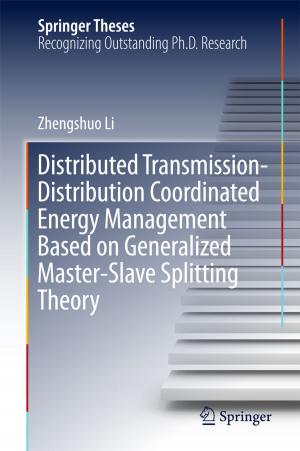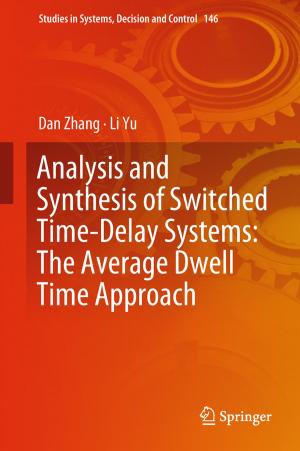India-Pakistan Trade Normalisation
The Unfinished Economic Agenda
Business & Finance, Economics, International Economics, Nonfiction, Social & Cultural Studies, Political Science, Politics, Economic Policy| Author: | ISBN: | 9789811022159 | |
| Publisher: | Springer Singapore | Publication: | December 8, 2016 |
| Imprint: | Springer | Language: | English |
| Author: | |
| ISBN: | 9789811022159 |
| Publisher: | Springer Singapore |
| Publication: | December 8, 2016 |
| Imprint: | Springer |
| Language: | English |
This book explores the unfinished India–Pakistan Trade normalisation agenda (building upon the themes covered in the book “India-Pakistan Trade: Strengthening Economic Relations” published by Springer in 2014) and discusses the steps that must be undertaken in order to move the bilateral engagement forward. Given the commencement of bilateral state-level talks and the Indian government’s emphasis on South Asian integration, it adds impetus to the trade liberalisation process, while also providing essential recommendations for policymakers in both countries.
The unfinished agenda faces obstacles such as the list of items for which export from India to Pakistan continues to be restricted; lack of land borders and seamless cross-border transport services, which hampers the realisation of trade potential; negative reporting in the media, which influences traders’ perceptions; and the continued occurrence of informal trade resulting from inadequacies of formal trade relations. The book examines various sectors, including the agricultural, textiles, automotive and pharmaceutical industries, given their predominance on the list of restricted items for bilateral trade. It also covers studies on unconventional and under-researched themes concerning informal trade, informational barriers to India–Pakistan trade, and opening new land borders for trade – all of which can play a facilitating role in realizing the untapped trade potential between India and Pakistan. The book also includes the second round of the India–Pakistan trade perception survey, which identifies impediments to India–Pakistan bilateral trade and assesses the change in traders’ perceptions since the first round of the survey, which was published in 2014.
This book explores the unfinished India–Pakistan Trade normalisation agenda (building upon the themes covered in the book “India-Pakistan Trade: Strengthening Economic Relations” published by Springer in 2014) and discusses the steps that must be undertaken in order to move the bilateral engagement forward. Given the commencement of bilateral state-level talks and the Indian government’s emphasis on South Asian integration, it adds impetus to the trade liberalisation process, while also providing essential recommendations for policymakers in both countries.
The unfinished agenda faces obstacles such as the list of items for which export from India to Pakistan continues to be restricted; lack of land borders and seamless cross-border transport services, which hampers the realisation of trade potential; negative reporting in the media, which influences traders’ perceptions; and the continued occurrence of informal trade resulting from inadequacies of formal trade relations. The book examines various sectors, including the agricultural, textiles, automotive and pharmaceutical industries, given their predominance on the list of restricted items for bilateral trade. It also covers studies on unconventional and under-researched themes concerning informal trade, informational barriers to India–Pakistan trade, and opening new land borders for trade – all of which can play a facilitating role in realizing the untapped trade potential between India and Pakistan. The book also includes the second round of the India–Pakistan trade perception survey, which identifies impediments to India–Pakistan bilateral trade and assesses the change in traders’ perceptions since the first round of the survey, which was published in 2014.















